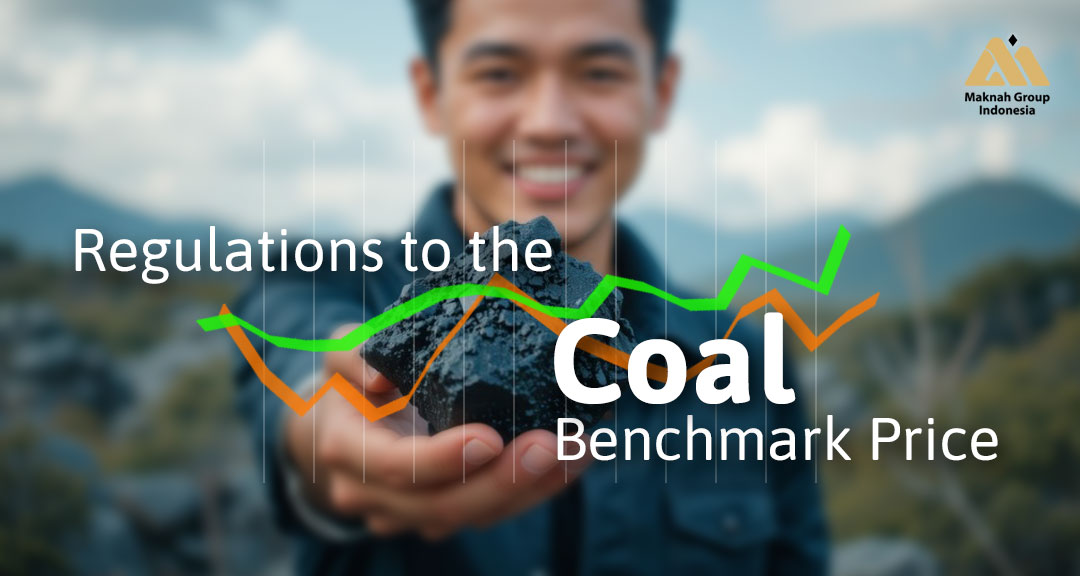Regulations To The Coal Benchmark Price
[ Knowledge ]
HPM & HPB 2025: New Challenges, New Opportunities, and Maknah Group’s Commitment.
On August 8, 2025, the Ministry of Energy and Mineral Resources (ESDM) issued Ministerial Decree No. 268.K/MB.01/MEM.B/2025 concerning the Reference Price for Minerals (HPM) and the Reference Price for Coal (HPB). This new regulation replaces the previous decree and introduces a major change: companies are now allowed to sell below the reference price, even though royalties and non-tax state revenues (PNBP) will still be calculated based on the official HPM and HPB benchmarks.
For many industry players, this policy feels like a double edged sword. It offers flexibility on the one hand, but also opens up new complexities on the other.
Why Does This Regulation Matter?
Over the past few years, the global energy market has experienced significant volatility. Coal prices that once soared due to the global energy crisis have since stabilized at more moderate levels. For Indonesia, the challenge has been to ensure that state revenues remain secure while also giving companies the breathing space to operate in times of weaker demand.
This new regulation seeks to address that balance: safeguarding government revenues through fixed HPM/HPB calculations, while allowing greater flexibility in pricing within the market.

Industry Impact
1. Miners: Flexibility Meets Margin Pressure
For coal miners, especially small and medium scale producers, this regulation presents a dilemma.
- Opportunity: Flexibility to sell below benchmark prices during downturns helps maintain cash flow.
- Risk: Buyers may push for lower prices, further squeezing profit margins. With production costs such as labor, fuel, and logistics, remaining relatively rigid, small and medium miners face growing pressure.
2. Traders: Flexibility Brings Fiercer Competition
Coal traders gain more room to negotiate and adjust to global market fluctuations.
However, this flexibility also sharpens competition. Less efficient traders may struggle to survive as price competition intensifies, forcing some to sell at thinner margins simply to remain competitive.
3. Exports: Eroding Indonesia’s Bargaining Power
From an export perspective, the regulation poses a strategic risk. If many sellers release coal below HPM/HPB, international buyers will become accustomed to bargaining for cheaper prices.
In the short term, this may help traders offload stock. But in the long run, it could weaken Indonesia’s bargaining position, as global markets may begin to perceive Indonesian coal as less valuable compared to competitors such as Australia or South Africa.
How Maknah Group Responds
As a national energy company engaged in minerals, coal, and oil & gas, Maknah Group sees this regulation not only as a new compliance requirement, but also as an opportunity to strengthen Indonesia’s energy resilience.
- Efficiency and Innovation
- Commitment to National Energy
- Global Market Strategy
- Long Term Vision
Maknah Group continues to improve operational efficiency from supply chain optimization and technology-driven production monitoring to adaptive logistics strategies. This ensures competitiveness even under price pressure.
For Maknah Group, energy is more than just a profit driven business. We position ourselves as a strategic partner to the Indonesian nation, ensuring stable and sustainable energy supplies that support national development.
We recognize that pricing flexibility comes with risks to export positioning. To mitigate this, Maknah Group emphasizes long-term strategies: building trusted global partnerships, prioritizing quality, and consistently fulfilling contracts.
This regulation demands greater agility in reading market trends. For Maknah Group, this is an opportunity to demonstrate resilience: managing short-term challenges while staying committed to our long-term vision of building national energy independence.
Conclusion: A Double Edged Sword That Can Open New Pathways
The HPM and HPB 2025 regulation clearly brings new consequences. While the state remains secure through royalties based on official benchmarks, industry players now face stronger pricing pressures both domestically and internationally.
This is where Maknah Group plays its role: not only adapting to regulation, but also committing to balance business interests with national interests.
We believe that through collaboration, innovation, and a long term commitment, Indonesia can maintain its strategic position in the global energy market while ensuring national energy security as the foundation of the country’s economic growth.
- 12 Sep 2025 -

